This article was co-authored by Damaris Vega, MD. Dr. Damaris Vega is a board certified Endocrinologist. She graduated Magna Cum Laude from the Pontifical Catholic University of Puerto Rico with a BS in General Science and subsequently earned an MD from the Ponce School of Medicine, Ponce, PR. During medical school, Dr. Vega served as president of the Alpha Omega Alpha Medical Honor Society and was selected as her school's representative for the American Association of Medical Colleges. She then completed a residency in Internal Medicine and a fellowship in Endocrinology, Diabetes, Mineral, and Metabolism at The University of Texas Southwestern Medical School. Dr. Vega has been recognized for excellent patient care multiple times by the National Committee for Quality Assurance and received the Patients' Choice Award in 2008, 2009, and 2015. She is a fellow of the American College of Clinical Endocrinologists and is an active member of the American Association of Clinical Endocrinologists, the American Diabetes Association, and the Endocrine Society. Dr. Vega is also the founder and CEO of Houston Endocrinology Center as well as a principal investigator for multiple clinical trials at Juno Research, LLC.
wikiHow marks an article as reader-approved once it receives enough positive feedback. In this case, several readers have written to tell us that this article was helpful to them, earning it our reader-approved status.
This article has been viewed 27,026 times.
Armour Thyroid is a type of animal-source thyroid hormone used for certain thyroid conditions. It is used to help treat hypothyroidism, along with the prevention and treatment of goiters, thyroid nodules, thyroid cancer, and multinodular goiters. Learn how to take armour thyroid to decide if it is right for you.
Steps
Taking Armour Thyroid
-
1Take Armour thyroid for hypothyroidism. Armour thyroid is an animal-source thyroid replacement used in the treatment of hypothyroidism. It’s used as hormone replacement therapy for people with hypothyroidism. It is also used to reduce the size of goiters and to treat thyroid cancer.[1]
- It is a natural mix of pig-derived thyroid hormones. It is measured as grains, and the doses range from ¼ grain to five grains. It is an alternative to synthetic, man-made thyroid hormone replacement.
- The symptoms of hypothyroidism include fatigue, dry, coarse hair, hair loss, dry skin, wanting to sleep often, intolerance to cold, decreased heart rate, swelling of the thyroid gland (goiter), unexplained weight gain or difficulty losing weight, constipation, and depression.[2]
-
2Go to your doctor. Since Armour thyroid is prescribed for hypothyroidism or associated conditions, you must go to your doctor. Hypothyroidism is diagnosed by symptoms and lab tests. Your doctor will perform a physical exam to check your thyroid. Your doctor will also take a medical history and have you provide a list of symptoms.
- Your doctor will also do lab tests, checking things like your thyroid stimulating hormone (TSH).
- If your doctor believes you have need to undergo thyroid treatment, your doctor will discuss your options with you.
Advertisement -
3Reevaluate your TSH levels every few weeks. If your doctor believes you need Armour thyroid, you will be started on the lowest dose, which is ¼ grain. You will be required to go back to the doctor in one to two months. The TSH levels will be remeasured every four to six weeks.
- Your doctor will look at your TSH levels and adjust the dosage of Armour thyroid so that the TSH values fall within a range between 0.5 and 4.0 mIU/L.[3]
-
4Keep track of your symptoms. Since the TSH level range is rather wide, you will need to keep track of your symptoms during the first few months of taking Armour thyroid. Keep aware of how you are feeling so you can talk to your doctor.[4]
- Some people don’t feel well unless their TSH levels go below 1.0. Others feel much better with higher TSH levels. TSH levels can be very individualized, so your doctor will work with you to find the proper dosage.
- Keep up with any fatigue or wanting to sleep more, changes in your hair, dry skin, sensitivity to cold, swelling of the throat, unexplained weight gain or difficulty losing weight, constipation, and feelings of depression.[5]
-
5Take Armour thyroid indefinitely. Once your personal optimal dose of Armour thyroid is achieved, you will likely stay on this dosage level for life. This helps keep your TSH levels at the appropriate place.[6]
- You should, however, be aware that the dosage required can change. This can happen because of disease, stress, menopause, injury, or trauma. Make certain you talk to your doctor about the level of Armour you take if you experience any of these events.
-
6Determine the best time of day to take your medicine. For most people, taking their dose of Armour in the morning one hour before eating works best. However, some people do better taking Armour and any other thyroid HRT in the evening. The only way to know is to try Armour at different times.
- Talk to your physician about the best way to do this to avoid any unpleasant side effects or other problems.
Using Caution When Taking Armour Thyroid
-
1Take Armour thyroid as directed. Only take prescribed dosage of Armour thyroid. Never increase or decrease your dose of Armour thyroid without discussing it with your physician. An overdose is possible and can be very dangerous, especially if there is any underlying heart condition.
- Overdosing on any thyroid HRT can cause hyperthyroidism, and in severe cases, coma and death.
- Do not mix with any other medication including vitamin supplements.
-
2Refrain from using Armour thyroid for weight loss. Armour thyroid should not be used to treat obesity. it has been shown to be ineffective for weight loss in people with TSH levels in the normal range.
- Large doses or using it when your levels are fine may cause serious or life-threatening side effects.
-
3Avoid Armour thyroid if you object to using pig or animal products. Keep in mind that Armour thyroid is derived from pigs. If you have any allergies to pigs, or any religious or philosophical objections to using products from pigs, the synthetic alternative may be better for you.
- Synthetic thyroid hormone replacements are man-made. They have only T4 in them instead of both T3 and T4. Most physicians prefer to prescribe synthetic thyroid hormones because they believe synthetic thyroid hormones are safer.
-
4Be aware of the side effects. While most people take the same dose for long periods of time, even for life, you should always be aware of possible side effects of high levels of thyroid hormone. These include chest pain, fast, pounding, or irregular heartbeat, swelling hands, ankles, or feet, and seizures. If you experience any of these symptoms, seek medical help immediately.[7]
- Other symptoms can include increased sweating, sensitivity to heat, mental or mood changes such as nervousness or mood swings, fatigue, diarrhea, shaking, headaches, and shortness of breath.
- Some patients may experience other side effects. If you experience any side effects, go to the doctor immediately.
-
5Monitor Armour thyroid when taking other medications. Any form of thyroid medication can interact with many different medications. Always tell your physician about all medications that you are taking. In some cases, dosage needs to be changed, and in other cases, the medications need to be taken at different times.[8]
- If you take an anticoagulant (blood thinner), your blood clotting needs to be monitored and the dose of Armour may need to be adjusted.
- Armour thyroid may interact with insulin or anti-diabetes medications.
- Cholestyramine and colestipol, which are used to treat high cholesterol and other conditions, should be taken at least four to six hours apart from Armour or any thyroid HRT.
- If you take estrogen or oral contraceptives, the dose of Armour or any thyroid HRT may need to be increased.
Understanding Armour Thyroid and Hypothyroidism
-
1Learn what the thyroid gland does. The thyroid gland is located at the base of your neck. It is a very important gland, producing thyroid hormones that help regulate your metabolism, body temperature, and heart rate. In children, the thyroid aids in growth and development. The thyroid is responsible for releasing hormones into the body.[9]
- Thyroid problems can be divided into two types: an overactive thyroid or hyperthyroidism, and an underactive thyroid or hypothyroidism.
- Hypothyroidism is treated with Armour thyroid while hyperthyroidism is not.
-
2Understand hypothyroidism. Hypothyroidism is also known as an underactive thyroid. This means your body produces too little thyroid hormones, causing body functions to process more slowly. All forms of hypothyroidism can be caused by viral infections, radiation damage, some medications, pregnancy, and other rarer causes.[10]
- Having an iodine deficiency can cause hypothyroidism. Iodine deficiency may be a more important cause of hypothyroidism since the primary source of iodine for many people who don’t eat fish is iodized salt. Since many people have reduced their salt intake, their iodine intake has also been reduced.
- Symptoms of an underactive thyroid include fatigue, constipation, depression, dry, coarse hair, hair loss, dry skin, wanting to sleep often, intolerance to cold, decreased heart rate, swelling of the thyroid gland (goiter), and unexplained weight gain or difficulty losing weight.
- Hypothyroidism is commonly treated with hormone-replacement therapy (HRT). HRT can be accomplished with natural hormone from animal sources, like Armour thyroid, or with synthetic, man-made hormones.
-
3Know what Armour thyroid is. Armour thyroid is an animal-source thyroid replacement used in the treatment of hypothyroidism. It is a natural mix of pig-derived thyroid hormones. It is measured as grains, and the doses range from ¼ grain to five grains. It’s used as HRT for people with hypothyroidism of any cause except for temporary hypothyroidism, and for the prevention and treatment of goiters, thyroid nodules, thyroid cancer, and multinodular goiters.
- A fourth grain of Armour thyroid is considered to be a 15 mg dose and equivalent to a 25 mcg dose of the synthetic T4 hormone commonly used. This is often the starting dose.
- Other dosage equivalents include: one grain equal to 60 mg and 0.100 mg of synthetic T4; three grains equal to 180 mg and 0.300 mg synthetic T4.
References
- ↑ http://www.mayoclinic.org/drugs-supplements/thyroid-oral-route/description/drg-20069086
- ↑ http://www.ncbi.nlm.nih.gov/pubmedhealth/PMH0072572/
- ↑ https://www.nlm.nih.gov/medlineplus/ency/article/003684.htm
- ↑ https://www.nlm.nih.gov/medlineplus/ency/article/003684.htm
- ↑ http://www.ncbi.nlm.nih.gov/pubmedhealth/PMH0072572/
- ↑ http://www.mayoclinic.org/drugs-supplements/thyroid-oral-route/proper-use/drg-20069086
- ↑ http://www.mayoclinic.org/drugs-supplements/thyroid-oral-route/side-effects/drg-20069086
- ↑ http://www.rxlist.com/armour-thyroid-drug/side-effects-interactions.htm
- ↑ http://www.ncbi.nlm.nih.gov/pubmedhealth/PMH0072572/
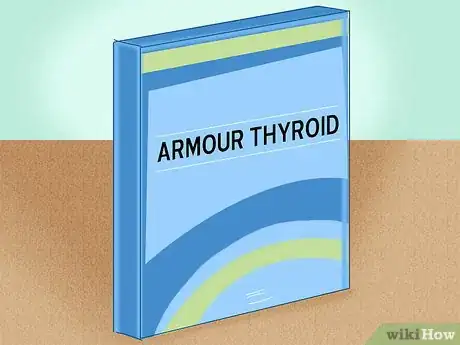



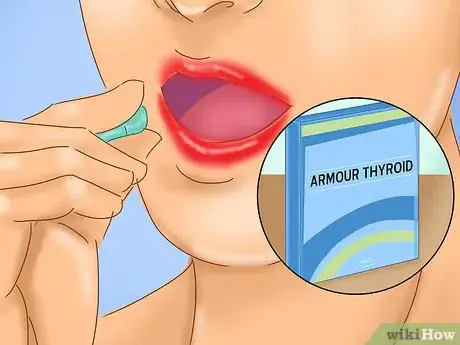

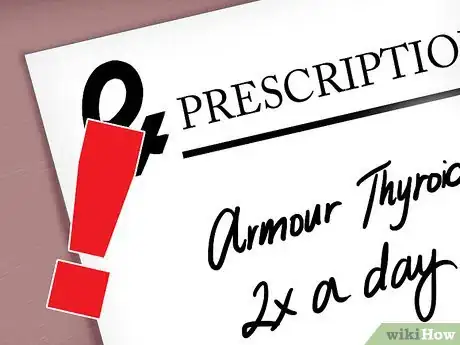
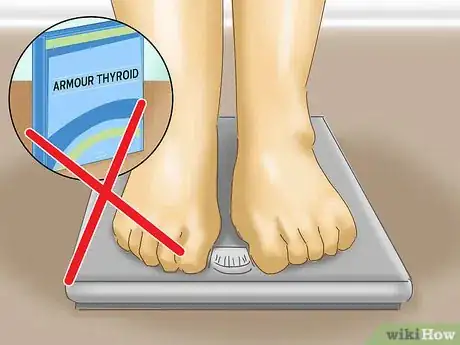
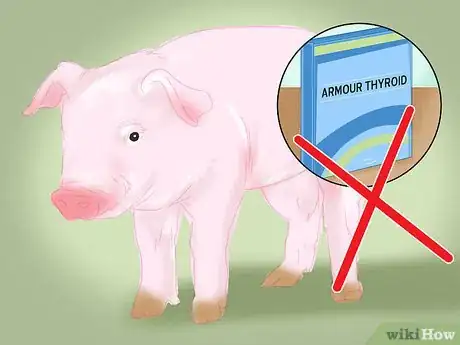
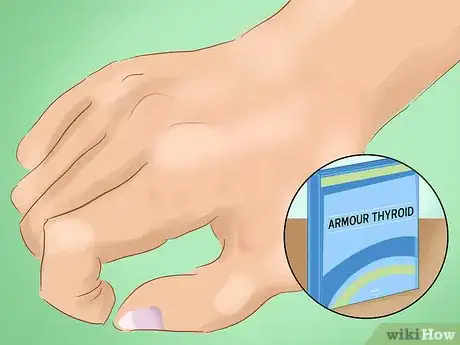
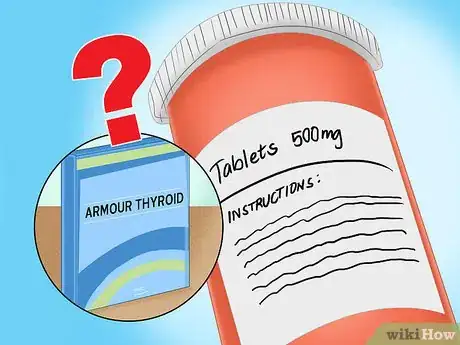
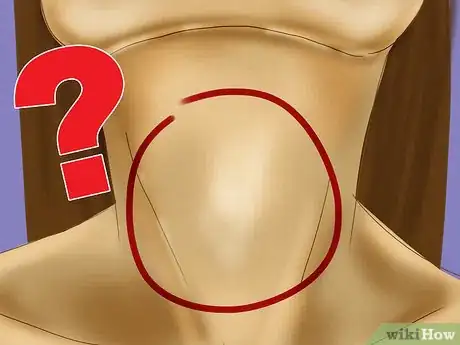

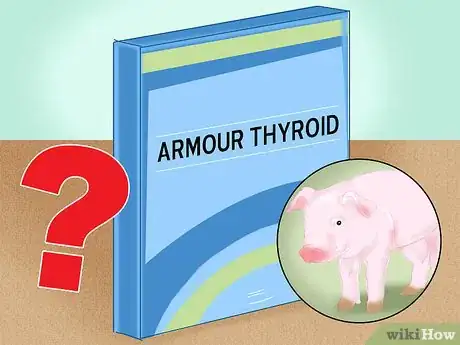
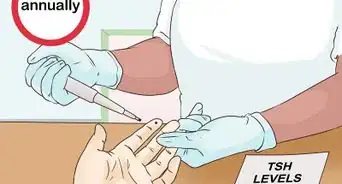









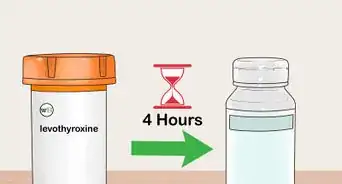

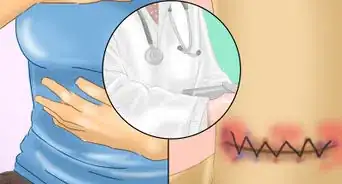











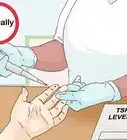

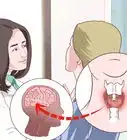




































Medical Disclaimer
The content of this article is not intended to be a substitute for professional medical advice, examination, diagnosis, or treatment. You should always contact your doctor or other qualified healthcare professional before starting, changing, or stopping any kind of health treatment.
Read More...